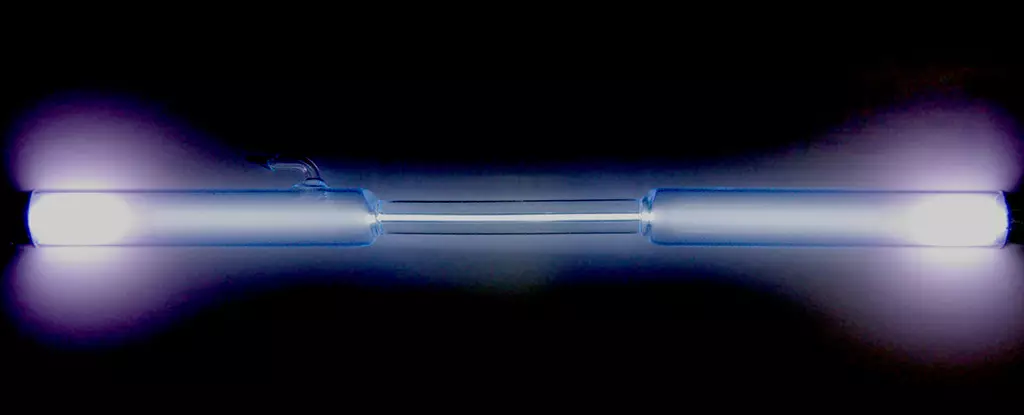When considering treatments for Alzheimer’s disease, the usual suspects like amyloid plaques and tau tangles come to mind. However, recent investigations suggest that a seemingly inert noble gas—xenon—could provide groundbreaking avenues in combating this debilitating condition. Known for its anesthetic properties and safety in the medical field, xenon’s unexpected role in treating brain disorders highlights the importance of innovative thinking in neuroscience.
Alzheimer’s disease is marked by several hallmark features that disrupt normal brain function, including amyloid and tau protein aggregations, synaptic loss, and chronic inflammation. Neurons, the primary cells responsible for cognitive functions, are supported by astrocytes and microglia, each playing crucial roles in maintaining brain homeostasis. While astrocytes provide energy and structural support for neurons, microglia act as the brain’s immune defenders. However, in the context of Alzheimer’s, an imbalance occurs where microglia become overactive, exacerbating inflammation and neuron damage instead of facilitating healing.
The current understanding of the disease posits that the accumulation of amyloid proteins precipitates a cascade of neurodegenerative processes. Although previous treatments have aimed at reducing amyloid burden, they have shown limited efficacy, prompting researchers to explore new, multifaceted strategies.
Recent studies out of Washington University and Brigham and Women’s Hospital have turned attention toward xenon as a viable agent for addressing the underlying mechanisms of Alzheimer’s disease. Historically utilized as an anesthetic and now in experimental treatments for various neurological complications, xenon may have the unique ability to shift the state of microglia from a detrimental role to a restorative one.
In the aforementioned study, mice with Alzheimer’s-like brain changes were exposed to xenon gas, revealing promising transformations in microglial activity. The xenon exposure appeared to trigger a state in microglia that not only decreased inflammation but also promoted the clearance of amyloid deposits. Rather than simply targeting one aspect of the disease, xenon manages to recalibrate the microglial environment, potentially impacting various disease facets simultaneously.
The study revealed that inhalation of xenon altered the state of microglia, enabling them to engulf amyloid plaques without perpetuating the cycle of inflammation, which is a common pitfall in traditional therapies. This mechanism indicates that xenon exerts profound effects on the immune response within the brain, steering it away from a heightened inflammatory state that typically accompanies Alzheimer’s. Remarkably, the treated mice demonstrated reduced amyloid deposits and indicators of inflammation, alongside enhanced neuronal connection support.
These findings provide a compelling basis for the hypothesis that xenon not only mitigates one hallmark of Alzheimer’s but could potentially attend to multiple areas of concern. This raises a critical question: can xenon become a multifaceted therapeutic approach?
The prospect of xenon therapy is tantalizing, especially as clinical trials are set to emerge within the year. If xenon’s efficacy is replicated in human trials, it could redefine how Alzheimer’s is approached therapeutically. Unlike conventional drugs that often target singular proteins, xenon might offer a broader umbrella of neuroprotection by adjusting the brain’s immune landscape.
Conversely, while these developments paint an optimistic picture, rigorous scientific validation is essential. Understanding xenon’s full profile—including any possible side effects—is critical before widespread clinical application can be realized. The intricacies of neuronal health and the potential for unintended consequences necessitate comprehensive research.
The exploration of xenon gas as a potential treatment for Alzheimer’s disease illustrates the dynamic and evolving landscape of neurological research. By moving beyond traditional approaches that emphasize specific protein targets, researchers are venturing into uncharted territories that might yield more holistic solutions. Although there are still many hurdles to overcome, the implications of utilizing a noble gas to counteract one of the most challenging brain diseases could indeed be revolutionary. As scientific inquiry progresses, the unexpected possibilities offered by xenon may herald a shift in our understanding and treatment of Alzheimer’s, emphasizing the need for open-mindedness in the quest for solutions against neurodegeneration.



Leave a Reply